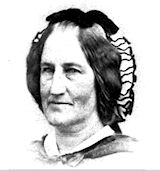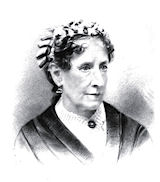“Mountain View,” July 29.—Mr. _____ and myself came over here on Friday, to spend a few days with the Bishop and his family. He delivered a delightful address yesterday in the church, on the thankfulness and praise due to Almighty God, for (considering the circumstances) our unprecedented victory at Manassas. Our President and Congress requested that thanks should be returned in all of our churches. All rejoice for the country, though there are many bleeding hearts in our land. Among our acquaintances, Mr. Charles Powell, of Winchester, Col. Edmund Fontaine, of Hanover, and Mr. W. N. Page, of Lexington, each lost a son; and our friend, Mr. Clay Ward, of Alexandria, also fell. The gallant Generals Bee and Bartow were not of our State, but of our cause, and we all mourn their loss. Each mail adds to the list of casualties. The enemy admit their terrible disaster, and are busy inquiring into causes.
This house has been a kind of hospital for the last month. Several sick soldiers are here now, men of whom they know nothing except that they are soldiers of the Confederacy. They have had measles, and are now recruiting for service. One who left here two weeks ago, after having been carefully nursed, was killed at Manassas. The family seem to lament him as an old friend, though they never saw him until he came here from the Winchester hospital. Two sons of this house were in the fight; and the Bishop had several other grandchildren engaged, one of whom, R. M., lost his right arm. His grandfather has been to Winchester to see him, and is much gratified by the fortitude with which he bears his suffering. He says, “R. is a brave boy, and has done his duty to his country, and I will try to do my duty to him, and make up the loss of his arm to him, as far as possible.” It is delightful to be with Bishop Meade. There is so much genuine hospitality and kindness in his manner of entertaining, which we perhaps appreciate more highly now than we ever did before. His simple, self-denying habits are more conspicuous at home than anywhere else. We sit a great deal in his study, where he loves to entertain his friends. Nothing can be more simple than its furniture and arrangements, but he gives you so cordial a welcome to it, and is so agreeable, that you forget that the chair on which you sit is not cushioned. He delights in walking over the grounds with his friends, and as you stop to admire a beautiful tree or shrub, he will give you the history of it. Many of them he brought with him from Europe; but whether native or foreign, each has its association. This he brought in his trunk when a mere scion, from the tide-water section of Virginia; that from the “Eastern Shore;” another from the Alleghany mountains; another still, from the Cattskill mountains. Here is the oak of old England; there the cedar of Lebanon; there the willow from St. Helena, raised from a slip which had absolutely waved over the grave of Napoleon. Here is another, and prettier willow, native of our own Virginia soil. Then he points out his eight varieties of Arbor Vitas, and the splendid yews, hemlocks, spruces, and firs of every kind, which have attained an immense size. Our own forest trees are by no means forgotten, and we find oaks, poplars, elms, etc., without number. He tells me that he has more than a hundred varieties of trees in his yard. His flowers, too, are objects of great interest to him, particularly the old-fashioned damask rose. But his grape-vines are now his pets. He understands the cultivation of them perfectly, and I never saw them so luxuriant. It has been somewhat the fashion to call him stern, but I wish that those who call him so could see him among his children, grandchildren, and servants. Here he is indeed a patriarch. All are affectionately respectful, but none of them seem at all afraid of him. The grandchildren are never so happy as when in “grand-papa’s room;” and the little coloured children frequently come to the porch, where he spends a great deal of his time, to inquire after “old master’s health,” and to receive bread and butter or fruit from his hands.











